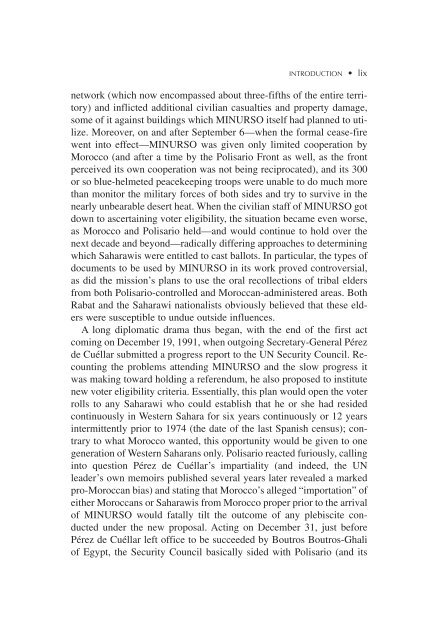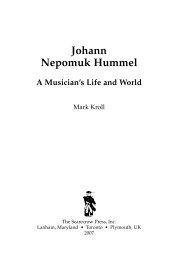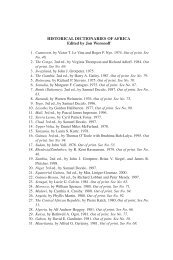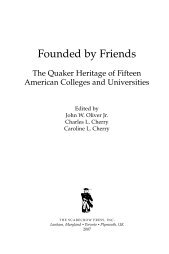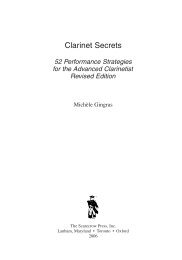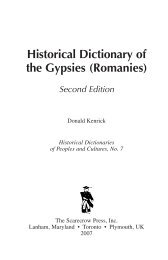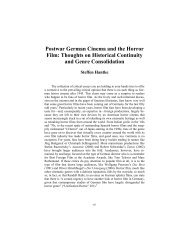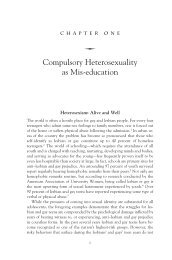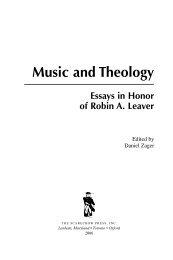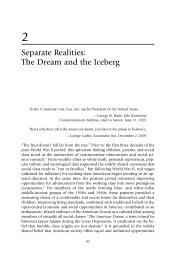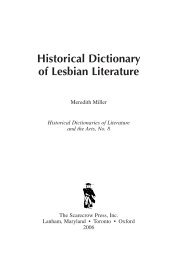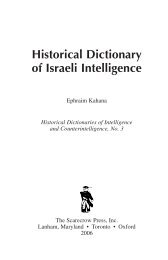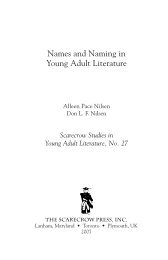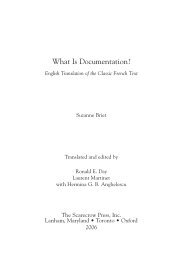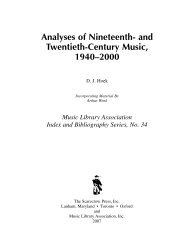Historical Dictionary of Western Sahara Third ... - Scarecrow Press
Historical Dictionary of Western Sahara Third ... - Scarecrow Press
Historical Dictionary of Western Sahara Third ... - Scarecrow Press
You also want an ePaper? Increase the reach of your titles
YUMPU automatically turns print PDFs into web optimized ePapers that Google loves.
INTRODUCTION • lix<br />
network (which now encompassed about three-fifths <strong>of</strong> the entire territory)<br />
and inflicted additional civilian casualties and property damage,<br />
some <strong>of</strong> it against buildings which MINURSO itself had planned to utilize.<br />
Moreover, on and after September 6—when the formal cease-fire<br />
went into effect—MINURSO was given only limited cooperation by<br />
Morocco (and after a time by the Polisario Front as well, as the front<br />
perceived its own cooperation was not being reciprocated), and its 300<br />
or so blue-helmeted peacekeeping troops were unable to do much more<br />
than monitor the military forces <strong>of</strong> both sides and try to survive in the<br />
nearly unbearable desert heat. When the civilian staff <strong>of</strong> MINURSO got<br />
down to ascertaining voter eligibility, the situation became even worse,<br />
as Morocco and Polisario held—and would continue to hold over the<br />
next decade and beyond—radically differing approaches to determining<br />
which <strong>Sahara</strong>wis were entitled to cast ballots. In particular, the types <strong>of</strong><br />
documents to be used by MINURSO in its work proved controversial,<br />
as did the mission’s plans to use the oral recollections <strong>of</strong> tribal elders<br />
from both Polisario-controlled and Moroccan-administered areas. Both<br />
Rabat and the <strong>Sahara</strong>wi nationalists obviously believed that these elders<br />
were susceptible to undue outside influences.<br />
A long diplomatic drama thus began, with the end <strong>of</strong> the first act<br />
coming on December 19, 1991, when outgoing Secretary-General Pérez<br />
de Cuéllar submitted a progress report to the UN Security Council. Recounting<br />
the problems attending MINURSO and the slow progress it<br />
was making toward holding a referendum, he also proposed to institute<br />
new voter eligibility criteria. Essentially, this plan would open the voter<br />
rolls to any <strong>Sahara</strong>wi who could establish that he or she had resided<br />
continuously in <strong>Western</strong> <strong>Sahara</strong> for six years continuously or 12 years<br />
intermittently prior to 1974 (the date <strong>of</strong> the last Spanish census); contrary<br />
to what Morocco wanted, this opportunity would be given to one<br />
generation <strong>of</strong> <strong>Western</strong> <strong>Sahara</strong>ns only. Polisario reacted furiously, calling<br />
into question Pérez de Cuéllar’s impartiality (and indeed, the UN<br />
leader’s own memoirs published several years later revealed a marked<br />
pro-Moroccan bias) and stating that Morocco’s alleged “importation” <strong>of</strong><br />
either Moroccans or <strong>Sahara</strong>wis from Morocco proper prior to the arrival<br />
<strong>of</strong> MINURSO would fatally tilt the outcome <strong>of</strong> any plebiscite conducted<br />
under the new proposal. Acting on December 31, just before<br />
Pérez de Cuéllar left <strong>of</strong>fice to be succeeded by Boutros Boutros-Ghali<br />
<strong>of</strong> Egypt, the Security Council basically sided with Polisario (and its


